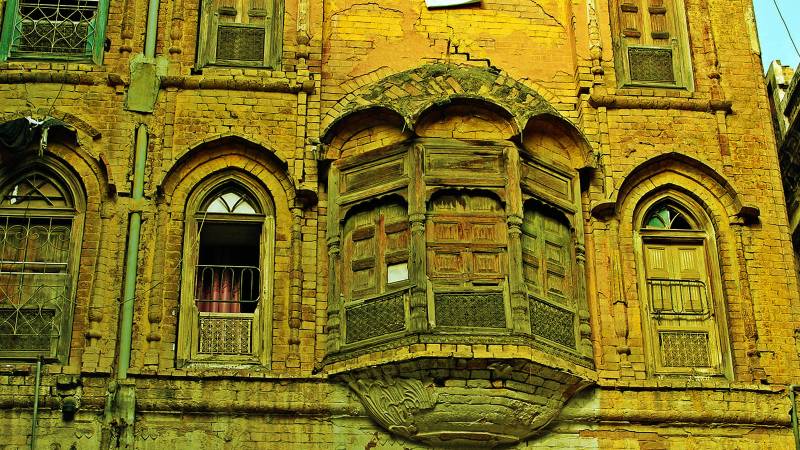
The vibrant streets of Rawalpindi came alive this weekend as the city hosted Pindi Mela, an immersive community engagement festival celebrating the cultural, historical, and artistic heritage of the city. The centerpiece of the event was the multi-medium exhibition titled "Memories of the City," curated by renowned Archaeological Anthropologist Shandana Waheed in collaboration with Hassaan Touseef, the founder of Pindi Heritage Tours.
Held at the iconic Multazam Manzil, a pre-partition Haveli in the heart of Lal Kurti, Pindi Mela offered a rich tapestry of experiences, drawing both locals and visitors eager to reconnect with the roots of the city and its residents. The exhibition, "Memories of the City," took visitors on a visual journey through Rawalpindi's evolution, blending artifacts, photographs, and contemporary art to reflect the city's diverse past and vibrant present.
A Curatorial Vision: Bridging Past and Present
Shandana Waheed, known for her extensive work in cultural heritage, explained that the exhibition was designed to explore the deep connections between the city's history and its present-day identity. "Rawalpindi is a city of many layers," Waheed said. "Through this exhibition, we wanted to highlight the often-overlooked narratives that have shaped the city over centuries. We often forget that history is not just in museums or books; it's alive in the people, the stories they tell, and the places they live."
The exhibition featured a mix of the city's relics, family heirlooms, photographs, and new media art, along with storytelling installations that gave voice to the many communities that have called Rawalpindi home.
A Celebration of Local Talent
Beyond the exhibition, Pindi Mela also showcased the rich creative talent of local artists and musicians, including renowned rabab player Sanaan Mehboob, famous Pashtun singer Bilawal Saeed, and tabla player Qamar Babar, a student of globally recognized music icon Ustad Tari Khan. Renowned figures from Rawalpindi's art scene participated in live performances and art displays, each reflecting a unique interpretation of the city’s spirit.
Musicians added dynamic energy to the festival, with performances ranging from traditional folk tunes to contemporary fusion, connecting the past to the present through sound. "Music has always been an integral part of Rawalpindi’s culture," said Touseef, who co-curated the event. "Through these performances, we aimed to show how the city's musical traditions continue to evolve."
Fostering Community Connection
The event was more than just a cultural display; it was an opportunity for the community to come together. Local residents, especially the younger generation, had the chance to engage with their city's history in new and exciting ways. Interactive art installations allowed visitors to contribute their own memories of Rawalpindi, creating a shared narrative that connected everyone to the city's ongoing story.
Touseef, a key driving force behind the festival, emphasized the importance of preserving Rawalpindi's heritage in a rapidly modernizing world. "Pindi Mela is about fostering that connection and ensuring that the rich history of our city is celebrated and preserved for generations to come," said Hassaan Touseef.
Looking Ahead
As Pindi Mela wrapped up its successful run, it was clear that the event had made a lasting impact on Rawalpindi's residents. The combination of art, music, history, and community engagement offered a unique platform for local creatives to share their work while also celebrating the city's roots.
With the success of the first edition, there are hopes that Pindi Mela will become an annual festival—one that continues to highlight Rawalpindi’s dynamic heritage and the creativity of its people. The festival’s organizers, Waheed and Touseef, expressed their gratitude for the overwhelming support and participation from the community, promising that they will continue to foster such activities in the future. Earlier this year, they also organized a community heritage walk in Lal Kurti that received an overwhelming response from the public.
As the lights dimmed and the crowds dispersed, the echoes of Pindi’s rich history and vibrant future lingered, reminding everyone that the memories of the city are alive, ever-evolving, and worth celebrating.

